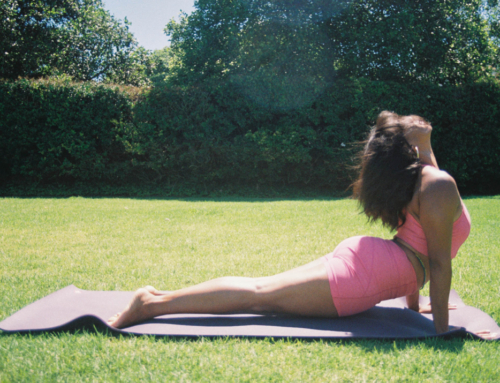Originally featured on SivanaSpirit.com
Self-care as a practice is necessary to recharge while living in this 21st century.
Self-care refers to activities and practices that we can engage in on a regular basis to reduce stress and enhance our health and well-being. Each individual’s self-care routine is as unique as a fingerprint since our souls are all nourished in different ways (1).
In 2015, I took a drastic dive into self-care when I decided to spend 30 days in Bali, Indonesia by myself. Immersion into a daily life of following my intuition and healing allowed me to develop a solid understanding of self-care and I was able to infuse these learned practices into my daily life in the U.S.
Luckily, travel to the other side of the world is not a prerequisite for beginning a self-care practice. I’ve listed some steps to get started below!
1) Uncover Stress
The first step in developing a self-care practice is to explore what are the primary stressors in your life. Physiologically, chronic stress can cause tension and migraine headaches, increased risk for hypertension, heart attack, stroke or diabetes in addition to a myriad of other health conditions. Awareness of what causes stress helps in cultivating your best self-care routine (2).
Begin by taking some quiet time in a relaxed mood and environment to list your daily stressors. Next, look at this list and brainstorm simple ways to lessen their effect by treating yourself or reframing your perspective. Is the commute to work your primary stressor? Perhaps you decide to treat yourself to a massage or dinner on Fridays to miss the evening commute traffic. Be creative!
2) Explore your Joy
Once you uncover your stressors, use joy to focus on reducing their impact. Replacing or adding joy to life via a self-care practice helps to elevate your mood while diminishing stress. What brings you excitement? What recharges you? What do you enjoy? If you had no daily commitments how would you spend your days?
Explore these prompts and notice how your body feels when in this state of thinking about your joy. Find ways to insert joy into each day and week.
Consider adding movement like yoga, meditation, or mindful eating to each day to increase your state of well-being. Self-care practices should center around increasing joy in your life.
3) Start Small
Any new life change can shift from exciting to daunting when placed under huge expectations. Break down your new self-care regimen into weekly intervals to encourage continued motivation. Set measurable and achievable goals like “I want to spend one evening this week indulging in self-care” or “I intend to infuse a small act of self-care in each morning this week.”
Even deciding to express gratitude for five things each evening can be considered a self-care practice. Being gentle and loving towards yourself during the development of your self-care routine will encourage you to continue to cultivate this special relationship.
4) Disconnect
Taking care of you sometimes requires checking out. An important aspect of self-care is nurturing the relationship you have with yourself. Decide on a time to unplug from the constant stream of information coming from the world. Social media can be counter-productive to self-care because of constant subconscious comparison to others.
Additionally, friends, family, and your email inbox may drain precious energy before the day has even begun. Try no electronics for the first 30 minutes of the morning or no Facebook before noon. Spend 15 minutes each day mindfully eating lunch without multitasking.
These are examples of making small shifts to disconnect from the outside world and allowing yourself the space and awareness to connect with your inside world.
5) Remove Negative Blocks
A barrier to consistent self-care is guilt. We are used to neglecting ourselves and as a result, many people feel guilty or self-indulgent for attending to their needs. It is our duty to protect our energy and space.
We cannot serve others from a place of emptiness; we must first fill ourselves. Explore what is causing guilt or other feelings that hinder the infusion of self-care into your life.
Create affirmations to reframe these thoughts and allow positive feelings to replace negative ones. Change “I can’t go to this new workout class because I’m tired, can’t afford it, and need to cook dinner” to “I am choosing to take care of myself and my finances, family and friends support this decision.”
Affirmations are a powerful tool to reprogram the mind and release limiting beliefs. Starting a self-care practice can seem intimidating, but it doesn’t have to be. The basic point of self-care is to begin to love and care for yourself intentionally. Find activities and thoughts that nourish and speak to you and do them consistently.
Good luck and Namaste!




